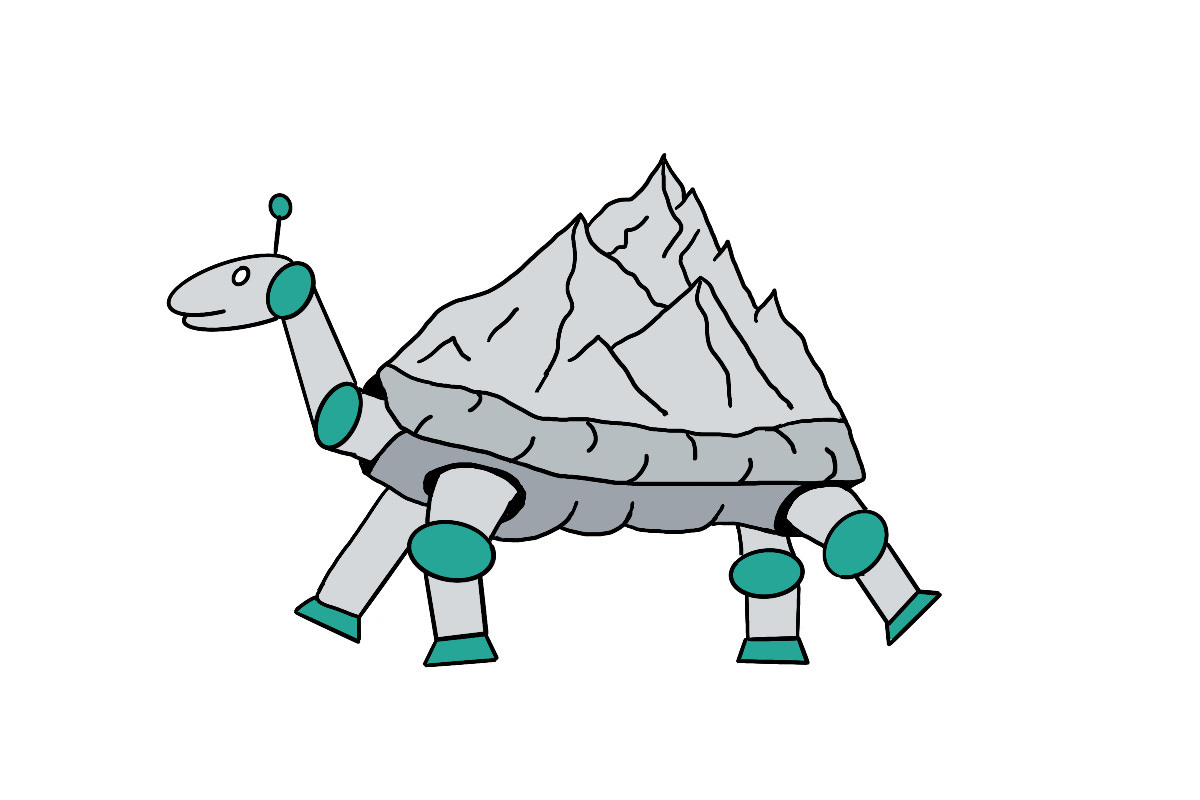Galápagosization
Originality in the age of globalization and influencer culture
In a rural Chinese village, Wu Yulu builds robots from scrap metal. One of his walking, talking robots with rubbery lips pulls the farmer around in a rickshaw. Yulu’s contraptions also pour tea, light cigarettes, and walk across the ceiling with magnetic feet. All these creations, which Yulu lovingly calls his “children,” are products of his mind alone. No formal education influenced him, for his knowledge of robotics was hard-won through self-education and tinkering in the 1980s—long before YouTube. Yet, scrolling through comments on a video about Yulu, we find statements like, “Imagine if he had formal schooling!” Yulu is a brilliant man, so did he invent such truly original robots despite no formal education or because of no formal education?
Yulu’s unique robots emerged outside the walls of academia, isolated from the corpus of robotics research. Just as I admire Yulu’s robots, biologists fawn over the faunal freakshow of the Galapagos Islands. Six-hundred miles off the Pacific Coast of Ecuador, the Galapagos is famous for its bizarre biodiversity. Since the islands are so isolated from other landmasses, their plants and animals evolved independently, untouched by mainland species and forces. The boobies, lava gulls, and giant tortoises all inspired Darwin’s theory of evolution and have captivated the imagination of humans worldwide. Given its reputation for isolation-induced originality, a principle bears its name: Galápagosization.
Island Mentality
Over the past 25 years, Japanese companies developed a reputation for creating technology products that didn’t scale to a global market. An early adopter of 3G, Japan was the first nation to introduce mobile phones with specialized features like calculators, photos, and GPS. Although the phones were more advanced than others on the market, they were incompatible with non-Japanese networks, limiting them from worldwide growth. Following the trend of Galápagosization, Japan’s digital payments, cars, and retail products met a similar fate—a secluded start to a secluded end.
Economists bemoan Galápagosization, claiming that Japan will struggle to compete in a future global marketplace. Since businesspeople continue to speak Japanese in the office and have little interest in moving abroad, globalists state that Japan will struggle to “break free from its conventional wisdom” and accept international trends. While globalization advocates criticize this island mentality, they might overlook Galápagosization as an innovative advantage.
An Isolated Advantage
Kurt Vonnegut explored the upsides of isolation in his satire Galapagos (1985). In the novel, a motley crew shipwrecks on a remote island in the Galapagos. As the rest of humanity proceeds to nuke each other on the mainland, the shipwrecked people evolve into a simpler form of human, less burdened by the defects of a “big brain.” Vonnegut expresses a truth—that maybe some things can find a uniquely beautiful path without the influence of convention.
Like a tailor-made suit, these Japanese products snugly fit the population they were designed for. The isolation from which they emerged imbued a cultural flavor uninfluenced by outside forces—a distinctive quality in a world becoming increasingly same-y.
The Shroud of Influence
Conventional wisdom tells us, “Don’t reinvent the wheel,” while modern literature on creativity tells us, “Everything is a remix” and that “Great artists steal.” A uniquely American ethos is present in all these pithy remarks, harkening back to the melting pot mentality of cultural assimilation. Speaking in a plain tongue, serving bland food, and seeking scale through efficiency have bled throughout America and into our global culture. These little beliefs shape a collective mindset that puts stock in influence and little credence to originality. Too many people don’t have enough things to say, so they regurgitate others, letting influence shroud their strange and special spirits.
During our age of influencers and global connectedness, celebrating individuality and the countless sub-cultures and diversity of thought it can provide—a Galapagos way of thinking—can be refreshing. Yulu carved a path of genuine creativity and rode down it on a robot-powered rickshaw, so what’s stopping us?
Go on, reinvent the wheel.
Junk Drawer
Play with multiple image-generation tools using one prompt.
Need inspiration? Learn about seven ways to reinvent the wheel.
Read Lemon Lime Lady, my latest short story published in Quillkeeper’s Press.



👍😊